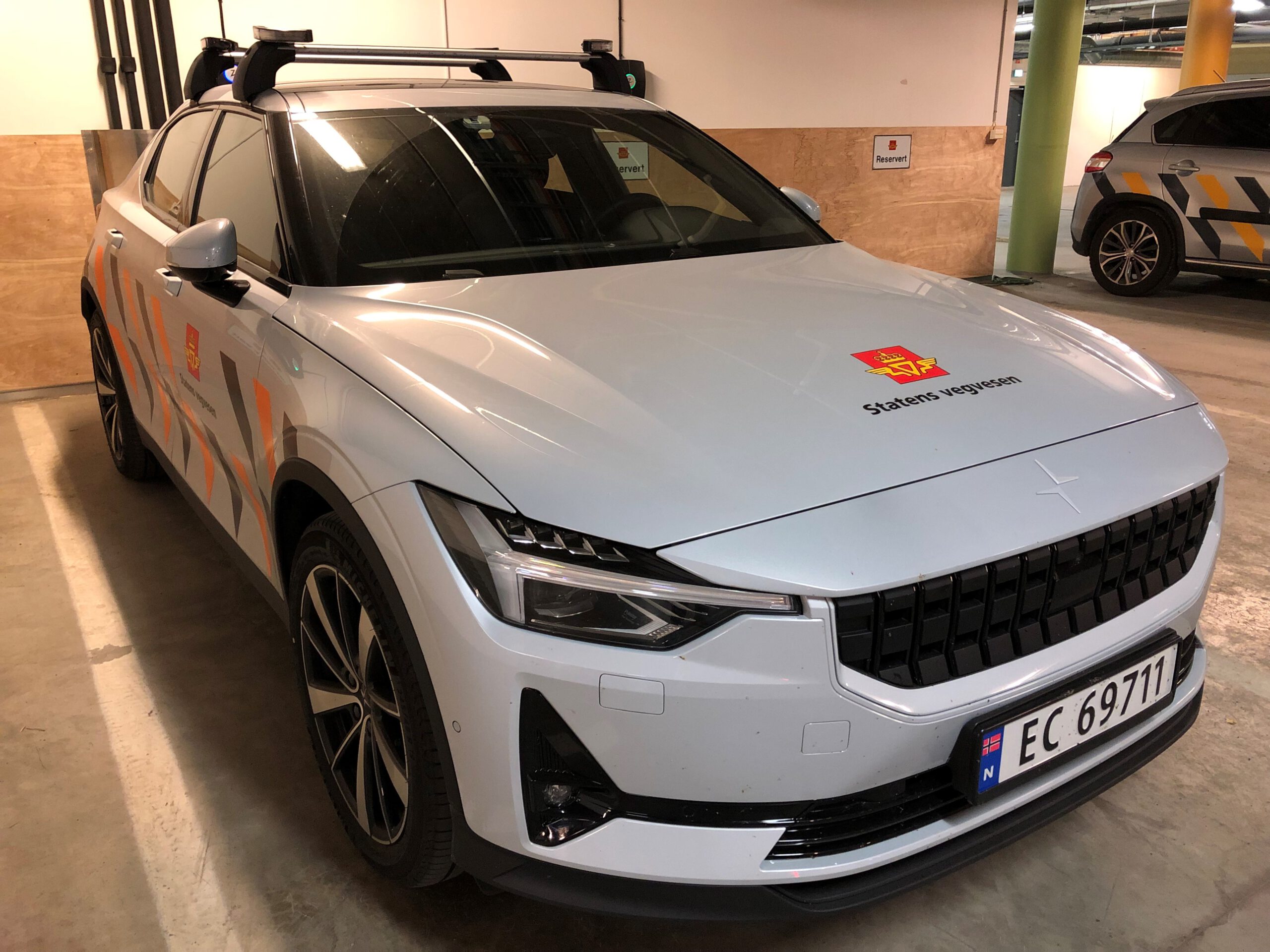. Collecting data from vehicles can ensure better road operations and construction. The Norwegian Public Roads Authority, Volvo and Polestar will obtain detailed information from cars that are in everyday use. As a result, it gives us the opportunity to build better, safer and cheaper roads.
In a joint FleetFlow project, the Norwegian Public Roads Authority, Polestar and Volvo will work together to collect data from 165 Polestar cars that the Norwegian Road Authority has leased for use.
- Modern cars are nothing more than advanced computers that continuously collect large amounts of information from many sensors and systems. The Norwegian Public Roads Authority is particularly interested in data about how the vehicle reacts to the road. These are data and information that were not practically extractable before, explains project manager Tomas Levin. 
Mutual benefit
Volvo Cars has already led cooperation with Norwegian Road Administration Public, and this time it will use Polestar vehicles to collect data. In their previous collaboration, they used Volvo cars to collect data.
Volvo Cars is looking forward to contributing to sustainable digital infrastructure solutions in collaboration with the Norwegian Public Road Administration. We have a long tradition of sharing data with Norwegian road authorities, and this is a new chapter in an exciting collaboration that is mutually beneficial, says Johan Amoruso-Wennerby, project manager at Volvo Cars Open Innovation Arena.

(Photo: Statens vegvesen)
of 165 cars
Polestar is an independent Swedish electric car brand founded by Volvo Cars and Geely Holding in 2017. The Norwegian Public Roads Authority initially ordered 140 Polestar Series 2 cars, but eventually ordered another 25 cars.
- At Polestar, we will identify potential and change the way we operate - both in our own company and together with customers and partners. This is an exciting example of how technology and data capture in our cars can change processes and operations in a positive way and add value to society and those around us, says Alexander Hørthe, Norwegian manager at Polestar.
Typically, car data is sent to manufacturers who use it to develop their products. The Norwegian Public Roads Authority now wants to see if this data can be used for other purposes.
For the first time
Among other things, sensors in cars are used to alert drivers that it is slippery. The same data can be used to obtain correct and accurate information on the road in winter. Vehicle data can also alert you to infrastructure malfunctions such as missing or illegible signs.
- We hope that data collection can lead to changes in the way roads are taken care of by the Norwegian Road Administration, and ultimately in the way new roads are built - says project manager Tomas Levin.
Until now, this type of data has only been obtained from test vehicles. This situation is probably the first where vehicle data is collected during normal operation in Norway. The project provides unique access to big data, which will improve the use and analysis of data. This will lead to better internal processes within the Norwegian Public Roads Authority. At the same time, it will provide safer and better conditions for public road users.
An important part of transport technology
Such activities are part of the Norwegian Public Road Administration's investment in new technologies through a separate program of intelligent transport systems. And in the future, this use of vehicle data will be important.
- As part of this project, we will test the new technology on ourselves to check whether the data is reliable and whether we can use it. In this way, we will also find good and practical ways to collect data. In order for road users to share data with us, we at the Norwegian Road Administration rely on their trust in us. Therefore, so-called "privacy by design" is an important part of the project, says Levin.
Privacy by design means that the service must be designed so as not to collect personal data as much as possible. If a problem cannot be solved without collecting personal data, only obtain the information that is strictly necessary.
The project covers four research areas:
- Vehicle data acquisition - what solutions are available and which method is the best.
- Data sharing - technical conditions, user rights and availability
- Data analysis - to what extent should the data be processed, by whom and is there a need to provide other data for the purpose of analysis?
- Legal and organizational reasons - user consent, GDPR
Read our next article: The Norwegian Public Roads Authority will review
If you are interested in this article, please leave a thumb. In this way you assess the degree of interest.


